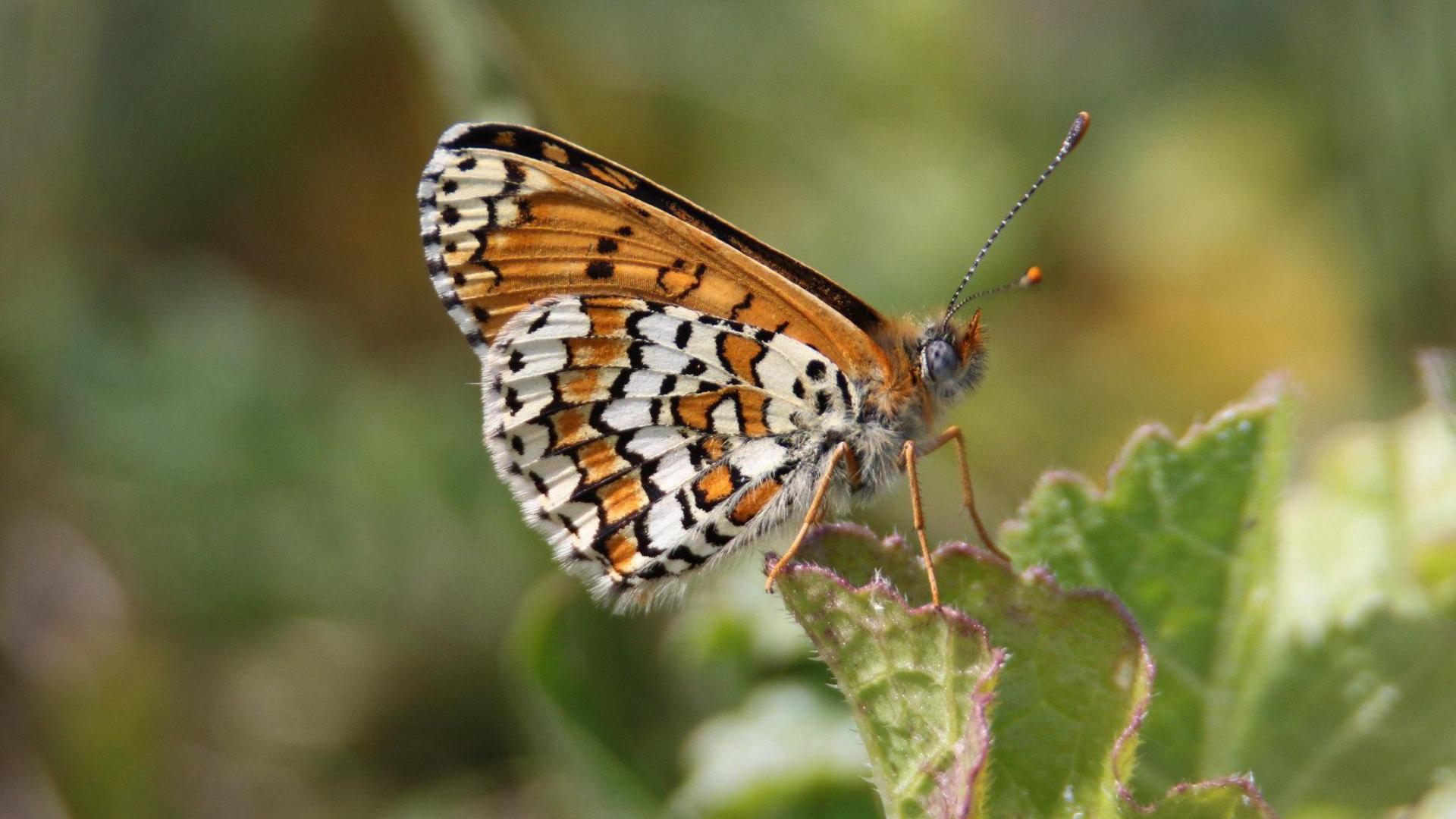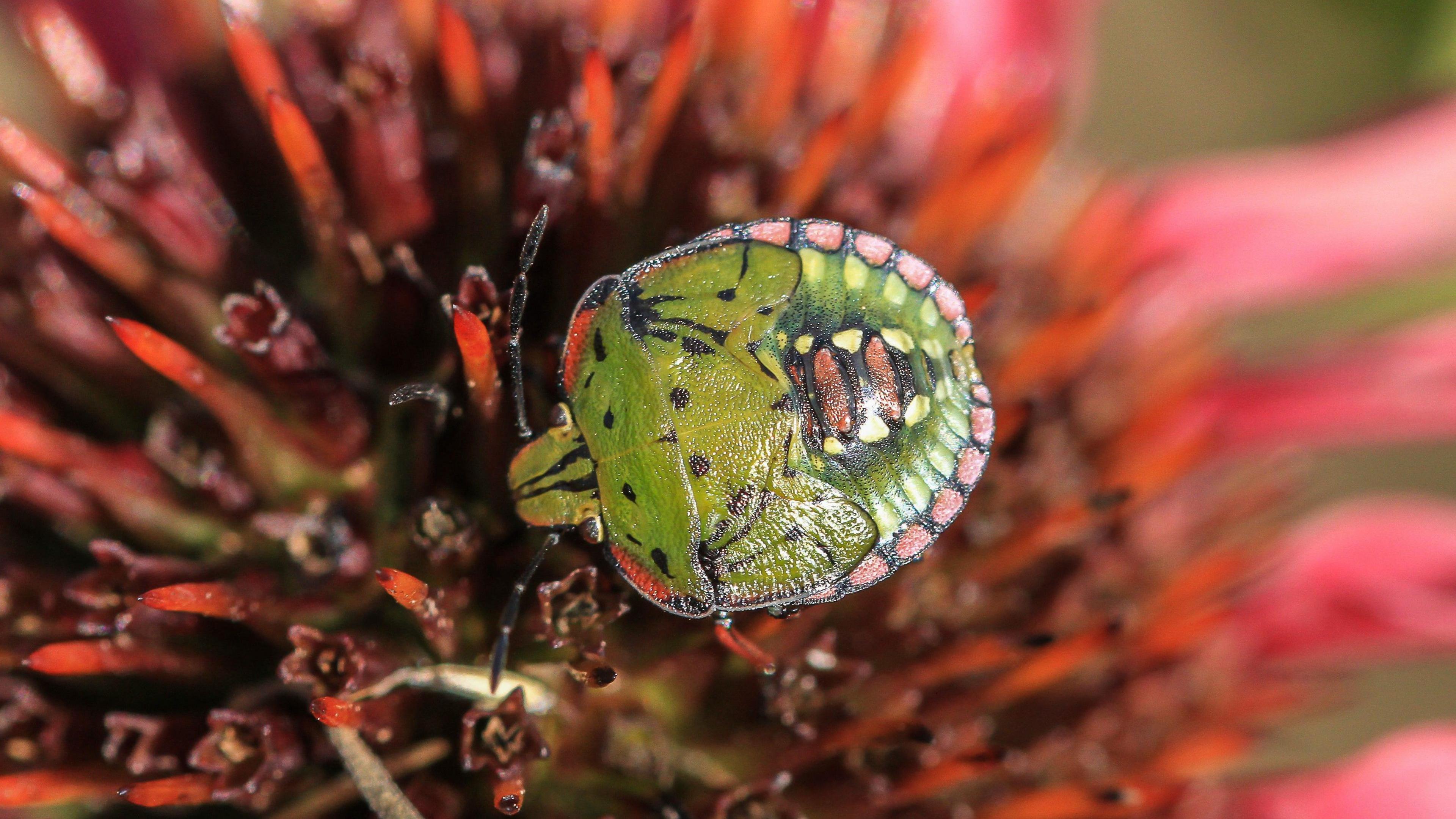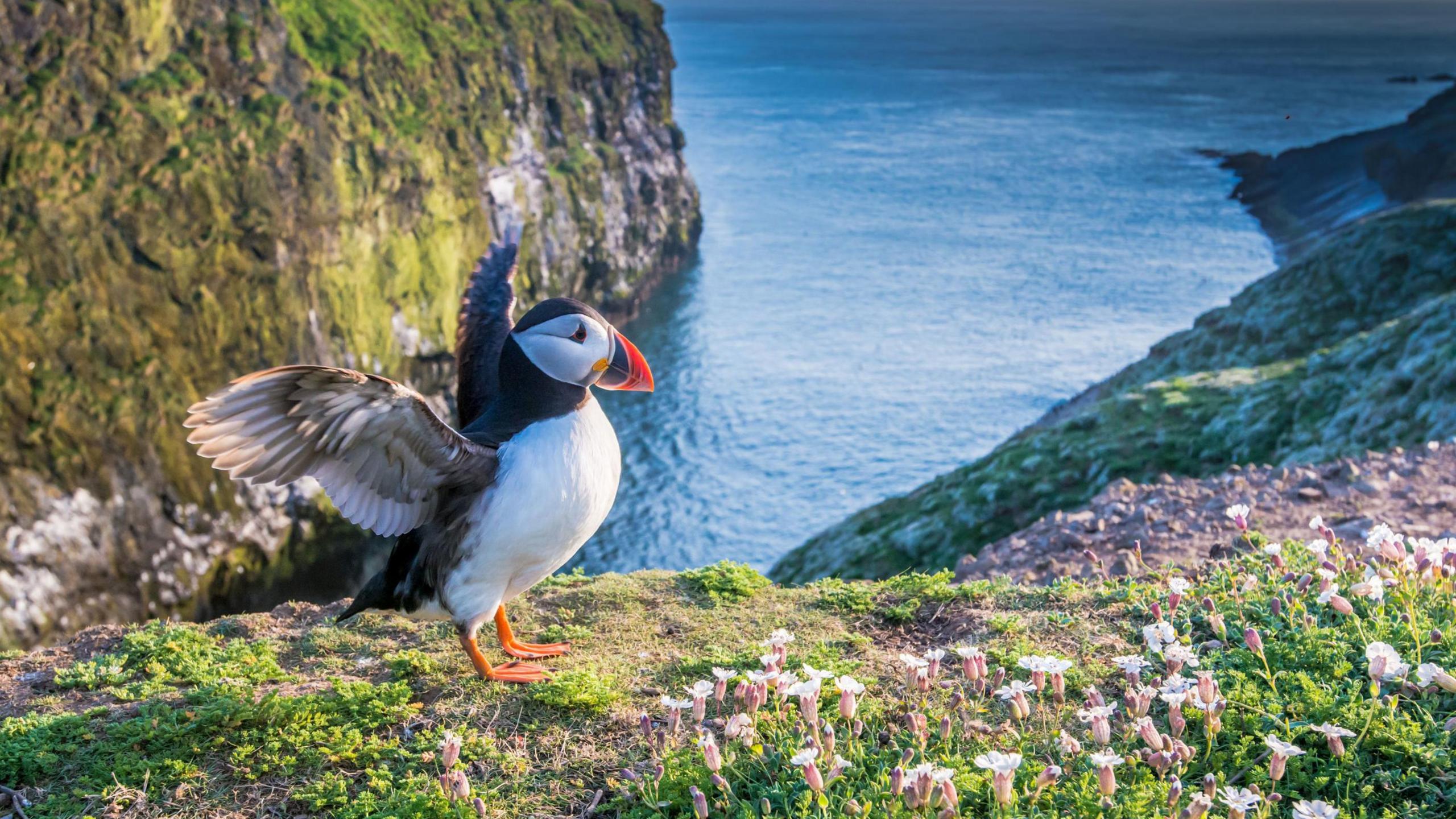Butterfly and moth numbers fall after wet spring

ABO warden John Horton said there had been a big change in numbers
- Published
A wet spring and "unusually" cold weather could have contributed to the drop in the number of butterflies and moths in Alderney.
Alderney Bird Observatory (ABO) warden John Horton said there had been a "big change" to the number of butterflies seen in the island, adding numbers had dropped by about 20%.
Mr Horton said a combination of a "very prolonged wet spring" and "unusually cold spells" appeared to be contributing factors.
"It's likely that quite a lot of the butterfly eggs have quite simply not been able to withstand the constant heavy rain and have been washed away and destroyed," he said.
Knock-on effect
He said the island has more than 20 species of butterfly as well as some migrant species.
Mr Horton said thousands of butterflies had previously been seen in just one individual day on the island.
The warden said moths had been "equally affected" on a similar scale.
"Where we would perhaps catch 500 moths in a single trap, this year, haven't seen a single trap with more than 100 moths in it," he said.
"Moths and butterflies have been equally impacted by the unusual weather conditions we have had this spring."
Mr Horton said the decline has a knock-on effect for other species, such as bats.
"Bat species will have suffered almost certainly because of the lack of food they would normally expect to find," he said.
Mr Horton said butterflies would be relying on future weather conditions for their "success or failure".
"We've got to hope for what we consider a relatively normal spring next year, a bit warmer and a lot less wet," he said.
Follow BBC Guernsey on X (formerly Twitter), external and Facebook, external. Send your story ideas to channel.islands@bbc.co.uk, external.
Related topics
More stories about nature
- Published4 May 2024

- Published23 December 2023
